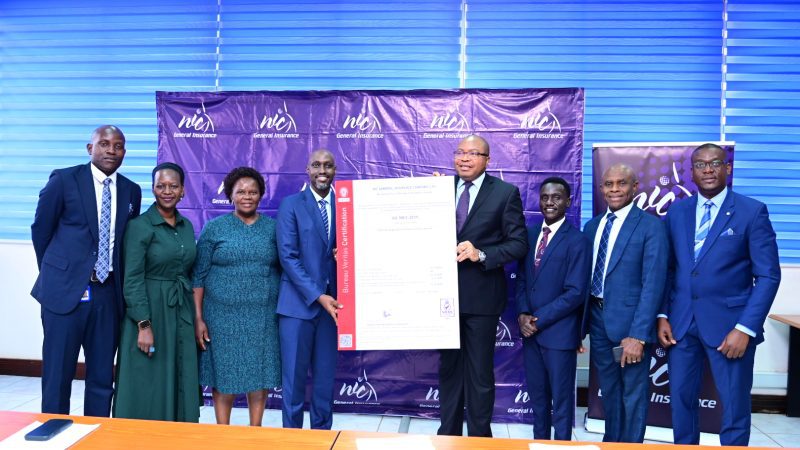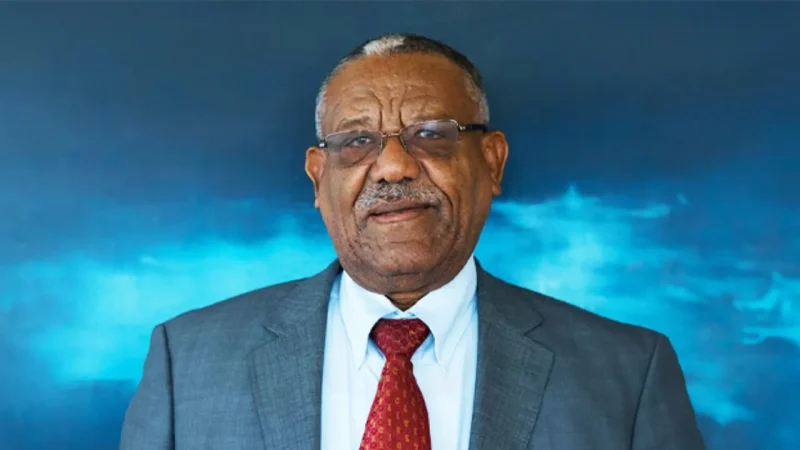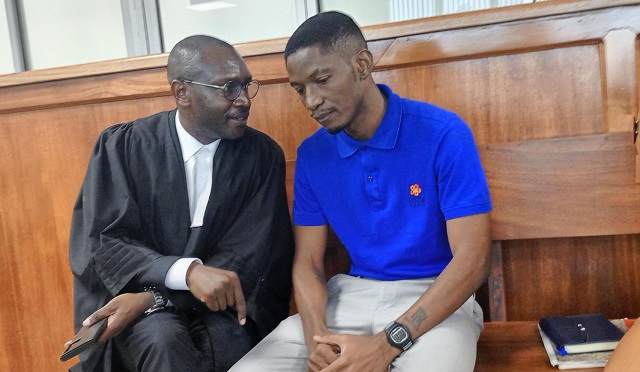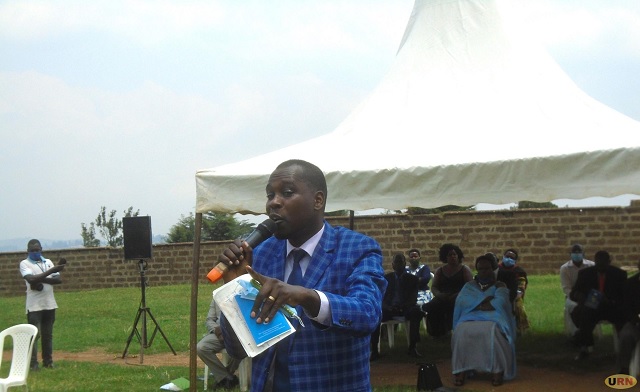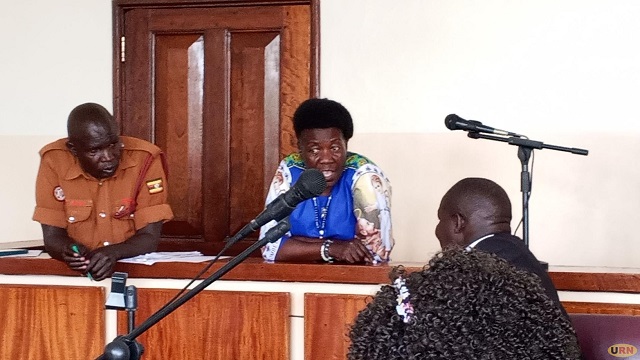Uganda’s Sexuality Education question is one that has lingered on unanswered for the last so many years, with different stakeholders approaching it differently.
In 2018, the Ministry of Education and Sports lifted a ban on Sexuality Education in schools and introduced the National Sexuality Education Framework. However, like many other laws that have been enacted in the past, the framework has remained redundant and rather ineffective because of various shortcomings cited by Civil Society Organisations and other stakeholders in the Sexual Reproductive Health Rights (SRHR) sector, calling for reforms in the Framework.
As the call to action goes on, children in Uganda’s schools continue to face various generational and technological advancements that expose them to even more sexually challenging situations. A case in point is about school prom parties that have morphed into an existential threat to morality, as some people have described.
The last couple of years have seen high school students turn into high-end socialites, every year, during their famous prom parties. From back in the day when all it took to have a good prom party were; a main hall, a DJ, and some modest outfits, to, now, hiring choppers, luxury cars, expensive suits and dresses and bodyguards to protect God knows what, the shift has, indeed, been quite significant.
While the government had recently come out, through the Ministry of Education and Sports, to put a total ban on the extravagance during school proms, sexual reproduction experts had worried that the outcomes of such exposure would affect students even more.
For starters, Prom parties are designed in such a way that students, especially in mixed schools, couple up with their opposite sex, in what has lately been termed as “Promposals”.
With the competition that is always created among the students about who pulls off the best look, ride, dress, suit, experts worry that this is likely to breed sexual immorality, indecency.
Dr. Jonathan Muhirwe, a parent and community psychologist, worries that this trend is likely to fuel teenage pregnancies.
Muhirwe says, when students are coupled up together, naturally they get the feeling that they are lovers and with their adolescent ages in play, the results can easily be sexual.
“Girls anxiously wait to be chosen by boys, while the rest look on in silent judgment. With utter ignorance of what they are doing, we are in for a doomed generation with lots of teenage mothers, if we watch this going on.” Muhirwe says
He adds that walking alone or even with another girl has become ‘awkward’. “What kind of social hierarchy are we teaching our daughters? Why must their worth be affirmed through a boy’s public proposal?” He asks
“However, like many other laws that have been enacted in the past, the framework has remained redundant and rather ineffective because of various shortcomings cited by Civil Society Organisations and other stakeholders in the Sexual Reproductive Health Rights (SRHR) sector, calling for reforms in the Framework”
However, Sheirat Namayanja, Youth Country Coordinator – SRHR Alliance Uganda, differs from Muhiirwe’s argument, saying: “Kids, these days, are more exposed than we were before and, therefore, we have to be up to speed with them and create material on CSE for this generation.”
She argues that instead of completely bastardising some of their trends and ways of doing things, a reformed CSE framework needs to be incorporated, speaking to the current times and challenges faced by young people.
Additionally, because the Prom parties have become increasingly expensive to pull off, it has led to some students, especially the less privileged, being left out and socially segregated.
Dr. Emily Nabwiso, an education expert and child psychologist, asks, “What then happens to those students whose parents can’t afford the millions of dollars required to enjoy the party?”
For the girls, because of the pressures therein, Dr. Nabwiso worries that without proper guidance and sexuality education, the effects of this trend might be worse than we could imagine.
In light of the fashion displayed in schools during the parties, some experts, parents worry that young girls are ignorantly initiating themselves into a sexual trap, many of them “exposing their bodies in the name of a party,” Dr. Nabwiso says, not knowing the dangers that might later come out of that. She adds that social media has also partly played a role in influencing what the young girls put on during prom parties.
With Comprehensive Sexuality Education, however, experts have argued that young people in schools will be aware of what might be harmful to their bodies, emotions, and hence engage in parties with caution.
Why comprehensive sexuality education is more relevant today
It goes without saying that, sexuality education in Uganda has faced many challenges over the years. In 2016, for example, parliament banned comprehensive sex education beyond the teachings of “abstinence only.” However, during this time, abstinence-only sexuality education in Uganda was ineffective, facilitating the dissemination of misinformation on the effectiveness of condoms and negatively affecting the self-esteem of young people.
The ban was lifted two years later, and the National Sexuality Education Framework was incorporated. This provided more holistic approaches to sexuality education, allowing young people to make informed decisions about sexuality.
According to a 2023 report on Comprehensive Sexuality Education by UNESCO, the framework launched by the First Lady covers topics such as human reproduction, including anatomy, prevention of pregnancy, body image and sexuality, gender-based violence and sexuality abuse.
“However, the contents are only centred around religious and cultural values because Uganda is a God-fearing nation with morals and virtues of an African setting,” the report says
This, according to some people, leaves out the ever-changing behaviours of young people due to evolving times. Dr. Muhirwe says that a new framework needs to be formulated, “going deeper into the sexual challenges young people are facing today, with the many vices they are exposed to on social media.”
Humphrey Nabimanya, Founder of Reach A Hand Uganda, noted that a revised Sexuality education framework, one that helps young people aware of deeper issues like healthy and respectful relationships, cultural and social norms, gender equality, non discrimination, sexuality behaviour, violence and gender-based violence, consent and sexuality abuse, and harmful practices, is more important today than ever before because young need to be aware of a lot more.
“This is very important with changing times, it is timely that we impart sexuality education to our teenagers. The physical and hormonal changes taking place in their bodies make them curious to try out the various things they feel. Additionally, the increased exposure through television, books, and social media makes them impulsive to try what is somewhat forbidden, as the age of modernisation has opened a Pandora’s box of opportunities and choices for young people. Therefore, the continued frustration of a comprehensive sexuality education framework, which would provide supervision in times like these, can result in more harm than good,” Nabimanya says.
Is CSE sensitive to certain age brackets?
When the Government, through the Ministry of Education and Sports, lifted the ban on sexuality education in schools in 2018, a section of parents argued against the age-appropriateness provision in the framework.
The National Sexuality Education Framework provided for children as young as 3-5 years to be taught in school about their sexuality, particularly about sensitive parts of their bodies that should be touched by anyone.
This, according to some parents, was culturally wrong. Rose Nampijja, a parent, through a journal, said: “In my Buganda culture, sexuality education is only passed on by either uncles or aunties, and sometimes, parents of a child, and not random outsiders like school teachers. Besides, my 3-year-old daughter would be too young to learn about her private parts and how they shouldn’t be touched by a man.”
This, however, has been challenged by several players in sexual reproductive health circles.
Annah Kukundakwe, an advocate for Sexual and Reproductive Health and Program Officer at Centre for Health, Human Rights, and Development (CEHURD), noted that the delay in introducing sexuality education to children is quite dangerous because it leaves the young ones unaware of their rights.
Kukundakwe believes that sexuality education among school children should start as early as possible, adding that, “three years is old enough for a child to start learning about their sexuality.”
“We have read stories, mostly in rural areas, of eight-year-olds getting pregnant, and more of the same age getting Sexually Transmitted Diseases because they innocently engaged in sexuality activities,” Kukundakwe said
She further said that: “We live in a morally decayed society where anything can happen to our children, and once we leave them to grow up in utter ignorance of what might happen to their bodies, we are endangering their future.”
Over the last couple of years, since 2018, Reproductive Health Uganda (RHU) has been resolute about which age bracket should most importantly consume sexuality education.
The organisation introduced a programme called Accelerating Change-Unlocking Sexuality Education in Uganda (ACCUSE). The programme was purposely geared towards improving the SRHR of young people between the ages of 10 to 24 years by increasing their consumption of sexual reproductive health services.
The framework paper of the programme, in summary, noted that a more supportive policy environment for the realisation of sexual and reproductive rights for young people would come in handy to save Uganda’s children from sexuality exploitation.
The programme sought to leverage existing partnerships and synergies to build a new coalition so as to advocate for the implementation of a Comprehensive Sexuality Education Programme with schools.
Additionally, the ACCUSE programme sought to advocate for the formation of a national policy on sexuality education and a quick review and adaptation of the National Sexuality Education guidelines.
Way forward
Comprehensive Sexuality Education should not only be regarded as a curriculum, but a lifeline to a better future for Uganda’s younger generation. As of 2022, according to the Ministry of Health, one in four (25%) girls between the ages of 15 and 19 either have a child or are pregnant. More statistics from the same source say that young people contribute 34% of new HIV infections annually.
If these statistics don’t worry about the future of Uganda’s young people, then it’s hard to understand what else will. However, the future can be safeguarded with effective measures taken, hence the need to teach the young people how exactly they can be in proper charge of their sexuality, through a reformed Comprehensive Sexuality Education system that addresses the challenges of today.
By integrating CSE into schools, Uganda has the opportunity to nurture a healthier, more informed, and more empowered generation. It is not merely a policy option, but a is a moral and developmental obligation as well.


